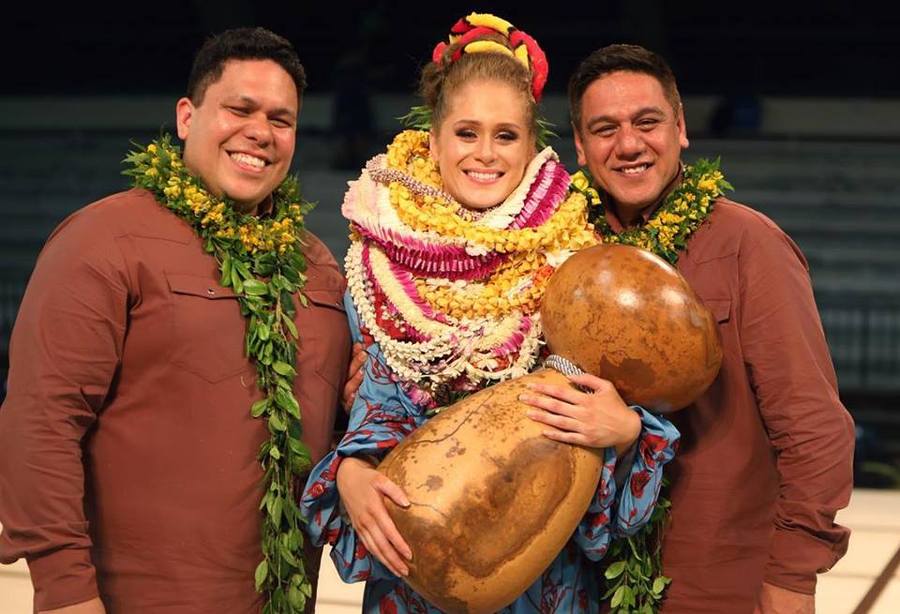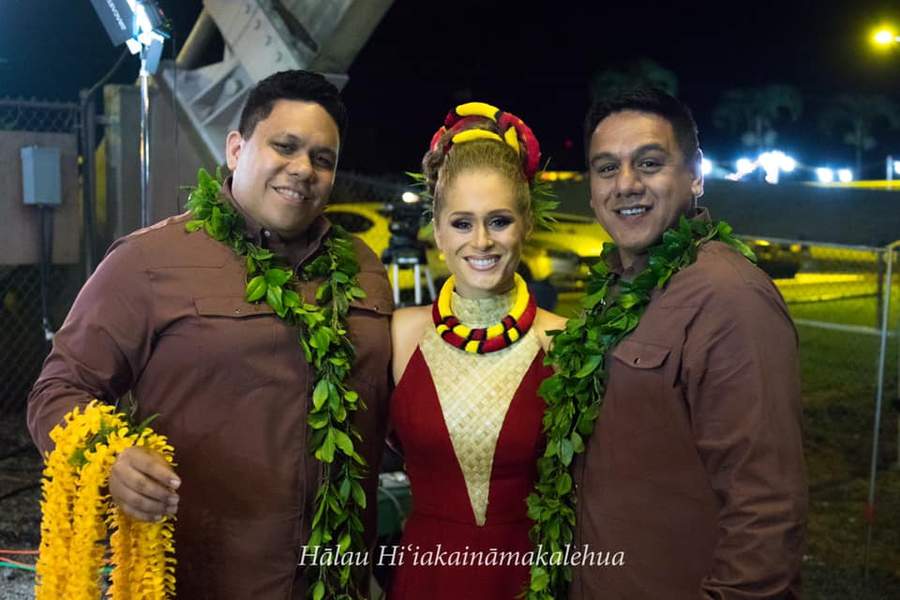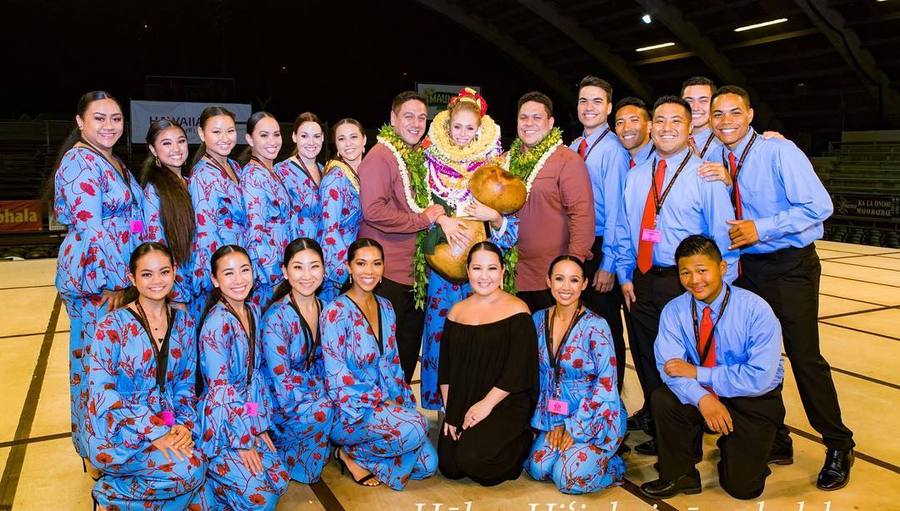KE'ANO KA'UPU
Island of Hawai’i
Kumu Hula
Q: What is hula?
A: Hula is a dance of course, and it's an entertainment, but there are so many layers to it depending on the perspective you take -- physical, intellectual, emotional, and also spiritual. From a cultural perspective, hula is the visual to the mele, or song- to the histories. Hula is our life, and like life we have both privilege and burden, happy and sad. It connects me to being Hawaiian. It is that catalyst for me to practice my culture. Hula touches on every life aspect of Hawaiian life simply because it is a means to storytelling and documentation.
Q: What is the Merrie Monarch Festival?
A: Merrie Monarch was started as an economic means for the town of Hilo and the island of Hawaii to come back from the 1960’s tsunami. And so with the help of Hill, Thompson, and Na'ope, Merrie Monarch was started. It was really a hula competition when it first started, but it has grown to be one of the biggest, if not the biggest, events in Hawaii and it culminates with the hula competition that is most famous now.
For me, because I'm from Hilo, sentimentally the Merrie Monarch is to perpetuate Hilo. It's part of the fabric of Hilo. And although I live in Oahu now, I'm still a part of the fabric of Hilo.
And then of course it is for the perpetuation of our hula.
I have been involved in Merrie Monarch every single year since 1990. Ever since I've danced, chanted, sang even, did costumes, leis, hair, makeup for many halau, not just our own. And in 2014, we had the opportunity to compete with our own halau and we've been competing since. When everything with covid went down, we were at the end of our Merrie Monarch journey for 2020. It was a huge loss, it was just like the air was sucked out of you. But almost immediately we started preparing for 2021. It's very different this year. There's a lot of rules, mandates, protocols. It's at least 10 times harder this year but I think the participation is worth it. Doing this right now will show Hawaii and the rest of the world and give confidence to other events that this can happen safely and cultural practices don't need to drop off the face of the earth. This is how important I think Merrie Monarch is. It has to continue so it can be a good example for other cultural events.
This year is almost ceremonial because there is no audience. It’s like when we ‘uniki, or graduate, when it's usually just the dancers and luna loiloi, or panel of judges, looking over you. No audience, just you and them and your environment. This is probably something like what our kumu hula had to go through because they couldn't practice hula publicly. All the pomp and circumstance gets eliminated and it's just raw hula. We can get very caught up in the distractions, the pageantry, the flair of it all, and I hope this year you just see what the kumus really do when their privileges that we have to teach hula are restricted or taken away. What do we really have to show? What kind of meat do we have?
Q: Is hula uniquely Hawaiian or is it something shared more generally in Polynesian cultures?
A: Hula is exclusive to Hawaii, not general to the Pacific islands. But every group of islands has a dance that is exclusive to those islands. They may have similarities visually and physically and in the mythology, but there are different functions of the dance from one culture to the next and different in terminology. To say they're the same thing is kind of like saying jazz is the same as rock and roll. As we know, they can blend and maybe make a creative collaboration, but they're distinctly different. For me, I love watching our other Polynesian cousins dance their native dances. And not even just Polynesian cultures, but other cultures around the world as well. They are continuing and perpetuating their culture, and I have so much respect for that- whether it's in the Pacific, or in Africa, or in Europe. I've found that dancing hula has made me appreciate other people's dances a lot more.
There are similar ideologies but also very different perspectives as well. You can also appreciate the other cultures by knowing yours. You can definitely appreciate others.




